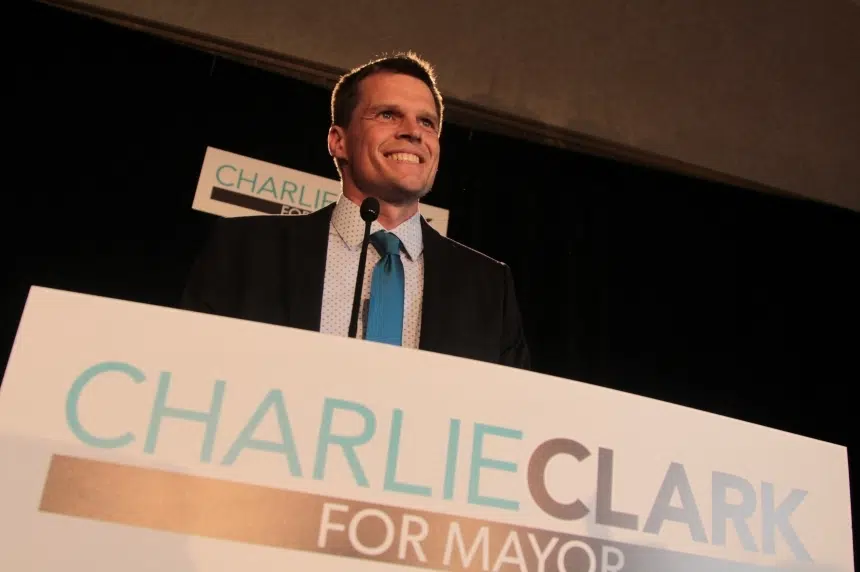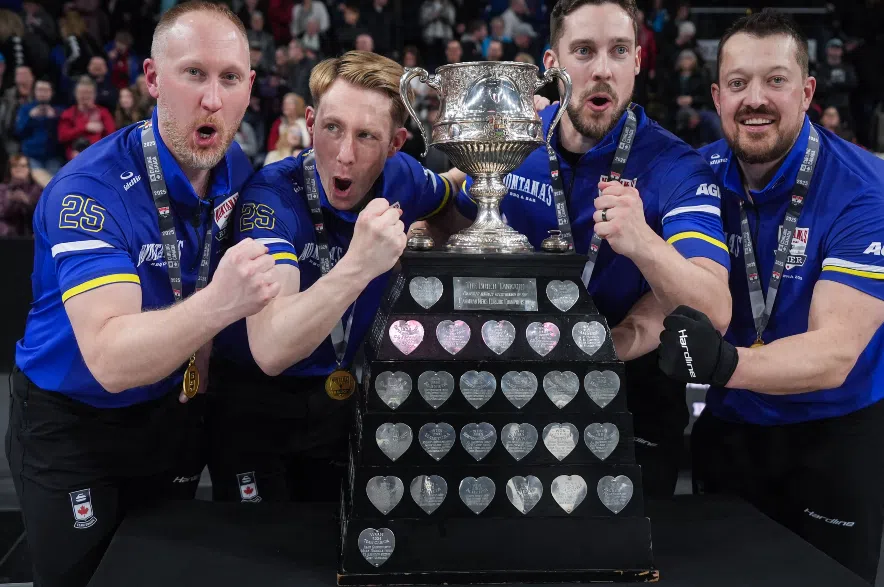Thursday marks one year since Saskatoon ousted the old guard of city council, electing Charlie Clark as mayor along with four new councillors.
As council prepares to deal with its second annual budget next month, the mayor reflected on his first year in office with 650 CKOM’s Chris Vandenbreekel.
He spoke about his accomplishments, failures and plans for the future. He also touched on the relationship council has with the province, and how the retirements of top city officials could affect leadership in Saskatoon.
The following interview has been edited for clarity.
Chris Vandenbreekel (CV): It’s been one year now since you were elected mayor of Saskatoon. How are you feeling a year into your new job?
Mayor Charlie Clark (MCC): It’s actually gone by quite fast, I must say. It’s been a pretty fast-paced and intense year. We’ve obviously had some challenges along the way with the provincial budget (cutting funding to municipalities by ending payments from crown corporations).
I feel proud of some of the things we’ve been able to do. Whether it’s coming to a resolution with the transit union early on to end the growing labour disruption, getting a regional growth plan agreement in place I think has been significant for the city. Obviously opening the new art gallery, establishing a new governance model for the city*, responding to the challenge of the provincial budget and at least coming up with a way we could pass a budget for 2017.
*City council has established portfolios for each councillor, assigning an area of expertise. For example, Ward 10 Coun. Zach Jeffries is tasked with science and technology development in the city.
CV: If there was one accomplishment you could single out though, what do you think the best thing is that you and council have accomplished this year?
MCC: It’s hard to pick one thing that sort of stands out. I think the thing from my experience in governance is changing the way we govern this city and trying to create a more shared leadership model between councillors.
That will enable our ability to make progress on some of the tough issues, whether it’s technology, climate change, safety and community wellness, changing our transportation system and changing our growth model.
We haven’t gotten to the end goal of any one of those things, but we’re setting the conditions I think to do a better job at tackling them. It’s taking quite a bit of effort, and so I feel like that has been significant.
CV: On the flipside of that, is there anything you wish council would have handled better? That you would have handled better as mayor?
MCC: There’s always missteps. I think that it would’ve been good to have been even more in front of the provincial government and engage with them in the lead up to the budget. Perhaps build even stronger connections to understand where they were going, what they were trying to achieve.
That definitely had the biggest impact on us and if there had been a way to avoid that, I would have liked to have done that for sure.
For me as the mayor, I have sometimes been clumsy in the mayor’s chair in terms of managing some of the processes and I feel like I’ve got room to improve.
CV: How do you feel that the relationship can be mended with the province after the budget cuts? How can you limit the impact on taxpayers?
MCC: The fallout from the provincial budget did reveal the way the province understands cities budgets and how we actually budget is quite different, and there hasn’t been as clear of an understanding as there could.
It’s really key we’re really clear with them on what we’re working on, and how and why we’re getting value out of the money that’s being invested here through taxes. If they’re cutting the programs we’re trying to deliver in the biggest city in the province, where we’re working to be an engine of the economy, it can undermine our future economic growth.
We need to make the case as clear as we can that we’re partners, that providing quality of life to our citizens will help the economy continue to grow. (We need to make it clear) for them to not have last minute decisions, but to work out a way forward that provides more predictability and sustainability in the funding.
CV: How difficult is it to deal with the retirement of two top city officials (Saskatoon police Chief Clive Weighill and city manager Murray Totland), and to have that potential power vacuum as you work to replace them?
MCC: As a testament to the leadership teams around both Chief Weighill and Murray Totland, we are in good hands where this does not create a crisis for the city in terms of a transition process.
Each of them has provided a great deal of leadership and contribution during a significant time of change in the city, and have decided to move on to another chapter of their lives.
For us it’s an opportunity to evaluate, what is the kind of leadership we think will help us in the next chapter here?
CV: Is there anything about the mayor’s chair that has surprised you?
MCC: Probably that I’m quite more of a public figure than I was as a councillor. The level of recognition I get.
As a testament to citizens, it’s generally very polite and positive interactions I have with people wanting to take pictures and talk to me.
That takes a bit of an adjustment for sure, and I didn’t realize shifting from councillor to mayor that would be the case.
CV: What’s it been like working with the new council?
MCC: We see a group of people that’s very engaged, with four new councillors and others with a range of experience from one term to three terms.
The sort of range in ages we have brings a range of perspectives to the table, and even on the political spectrum we have a wide range of perspectives.
Everyone is contributing and adding to the debates we’re having. I think everyone is listening to each other well and taking their roles very seriously.
We’re really inventing a bit of a new model to treat city council more like a cabinet of government, and I applaud everyone on council for wanting to do this and finding a way to move forward.
I’ve been really impressed with this group for sure.
CV: Looking forward at year two, what do you foresee as your priorities for improving life in Saskatoon?
MCC: We’ve got waste as a utility, and the whole discussion of changing the model of how garbage is collected in the city which always has a significant impact and we want to be very thoughtful on that.
We’ve made progress already on addressing policies to facilitate more infill and downtown development, to balance out the growth plan and create a more economically and environmentally sustainable city. We certainly have more work to do on that front.
I’ve also had very good discussions with a number of different community leaders and organizations over community safety and wellness. The impact of crystal meth, public intoxication and homelessness continue to have on our community.
We’ve been making some progress on creating the terms for a more coordinated strategy and I look forward to unrolling that soon.
These issues affect all citizens and the quality of life in our community. I think we have the chance to make progress in the next year, and I look forward to working toward that.
CV: Last question to you, do you feel the people who voted for you and for this council are pleased with what’s gone on this year?
MCC: The feedback I get has been generally quite encouraging. Even though (the election) was divisive, and I didn’t get the majority of votes in the end, once the election was over people said, “Okay, we’re going to give this guy and council a shot.” People are willing to work with me and that’s what I’m experiencing.
I’m making sure to reach out to the whole community as much as I can, whether they were supporters or not. Our goal as a city is to make sure we’re taking on the province of the future, and everyone plays a role in that.
It’ll be up for citizens to decide whether they’re pleased or not, and I’m going to continue building as many bridges as I can in the community.







